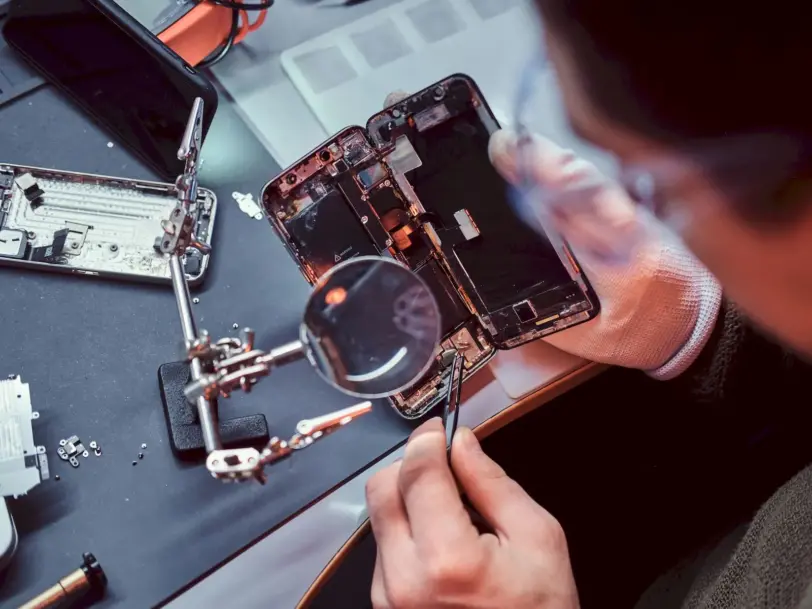What does iPhone maximum capacity mean?

Discover the meaning of your iPhone’s battery health and learn to interpret data such as “iPhone maximum capacity” to maximize its lifespan.
What is iPhone battery health?
The battery of an iPhone is a tangible, consumable component. Similar to a car battery, it degrades with usage and over time. The iPhone provides updates on the battery’s current status, enabling us to make informed decisions.
How does an iPhone battery work?
The iPhone’s battery utilizes lithium-ion technology, which is the most advanced of its kind. It is advisable not to keep the iPhone charged at 100% or depleted at 0% for prolonged periods.
The iPhone and its battery are designed to last a certain number of charge cycles. A single charge cycle is completed when the battery is charged to 100%, but it doesn’t need to be in one go. For example, you could charge your iPhone by 80% at work and then by 20% at home, which together would count as one full charge cycle. Essentially, with a lithium-ion battery, there’s no need to charge your iPhone to 100% in one session. You can charge it as per your convenience and necessity.
Analyzing Battery Health Data on iPhone
All batteries have a finite lifespan. As time passes, a decline in performance is inevitable due to the battery’s aging process.
To access this information, navigate to Settings > Battery > Battery Health. There, you will find two sections:
- Maximum capacity.
- Highest throughput capacity.
Maximum capacity
The maximum capacity of a battery is indicated by a percentage, such as 95%, which reflects its wear and tear. A new battery starts at 100% capacity, but after two years, it may decline to around 80%.
What does this mean in practical terms? For instance, if a full battery originally allows for 10 hours of video watching, after two years, you might only get 8 hours out of it at 80% capacity.
When the capacity of your battery diminishes, you have the option to enable or disable Peak Performance Capacity.
Enabling Peak Performance means that if your battery doesn’t have enough power for certain tasks, your iPhone will reduce the processor’s speed to prevent unexpected shutdowns.
How to take care of iPhone battery health?
It is important to acknowledge that all batteries have a finite lifespan and will naturally degrade over time. However, there are steps you can take to ensure your iPhone’s battery health remains optimal for as long as possible:
- Avoid high temperatures: Do not charge your iPhone with a power bank in the sun or on the street in summer unless absolutely necessary.
- Do not be afraid of short loads: it is better to make small charges than to push the battery to an extreme (0%) and bring it to 100% every day.
- Leave it on charge overnight without worry: iPhone is smart enough to manage battery charge in the evening. It will not affect the health of the battery if it continues to charge overnight.
It’s advisable to replace the iPhone battery once its health falls below 80%. This typically occurs around two years after purchase, depending on usage. However, it’s not uncommon for the battery to reach this level of degradation after four years.